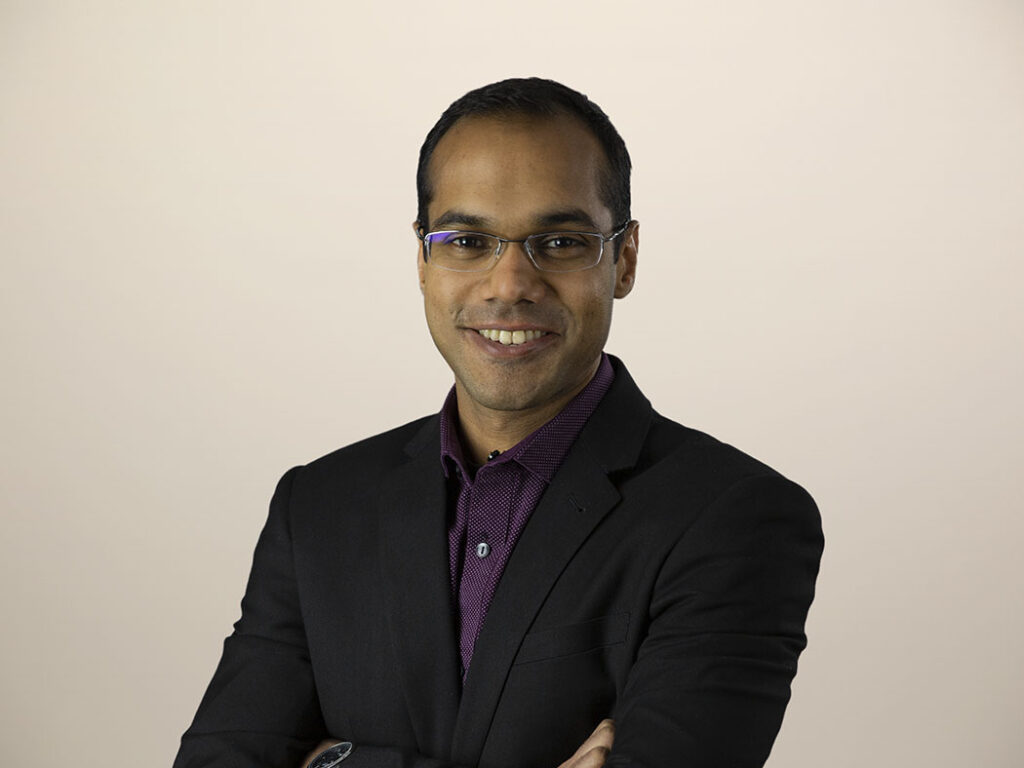Forr The Planet: Sustainability Interview Series – Atos
 Photo by Abhijit Sunil
Photo by Abhijit Sunil
In my research pursuit of technology sustainability, I speak with many technology and business leaders around the world about their sustainability initiatives. Occasionally, I encounter someone doing something special in this important business quest. I hope to interview as many of them as I can and share their insights with you.
The first in this series is with Philippe Mareine, chief digital and transformation officer and head of corporate social responsibility at the French technology and services giant Atos. I spoke with him on January 15, 2021 about his work and what Atos is doing in the field of sustainability.
Abhijit: Why is sustainability so important at this time for Atos internally and for your clients?
Philippe: Exactly as you say, sustainability is not only important for Atos but for all our customers and stakeholders at large and for society. We really feel the expectations of our customers and investors and also from the young generation. We hire 10,000 young graduates per year. This is why we have put sustainability in what we call our “raison d’être,” so this is our sense of purpose. We were the first CAC 40-listed company in France to get voted by our shareholders to now be part of our articles of association. It was voted — by the way — by nearly 100% of our shareholders. And in this sense of purpose, sustainability is at the heart, because we want to contribute to society, designing an information space based on our business, an information space where everybody can live confidently and sustainably. So this is really the heart of our strategic purpose.
Abhijit: What are your customers asking for help with the most, at this point? For which projects do they need help?
Philippe: We see three main expectations from our stakeholders and from our customers. Number one is obviously to help them fight against climate change — so to decarbonize in a way and to reduce their CO2 emissions. And this is the reason why we have put decarbonization at the heart of our business strategy. Eighty percent of our customers have carbon-neutral objectives, so it is a very strong expectation that we contribute. Number two — and especially in this context of the COVID crisis — they expect Atos to help them deploy inclusive digital technologies so that everybody — wherever we work: from home, the office, remote, flexible, etc. — can take the best of the digital tools and can feel properly included and integrated at work. And I would say number three is the mode of our core business, which is to process data from our customers. And our customers are expecting that they can trust Atos in the way we manage their data. This is from a data protection perspective, from a data security perspective, and also so that every artificial intelligence solution that we offer to our customers is managed in an ethical way.
Abhijit: Within Forrester’s sustainability technology framework, where do you see Atos being the strongest and the weakest?
Philippe: First of all, congratulations for the framework. I find it extremely interesting, so thank you for making that. On the procurement part, we’re extremely focused on green energy and we feel very mature and advanced here.
Sustainable water is something which is a little bit less relevant for us because most of our data centers are mostly cooled by air; even if we developed water cooling today, we are not a big consumer of water.
In terms of sustainable hardware, this is something that we are extremely engaged in, including from an R&D perspective. We are quite strong in what we call high-performance computing — so, supercomputers. And we compete and invest to develop the most energy-efficient supercomputers worldwide. Today, we are number three worldwide and number one in Europe. So this is something where we put a lot of emphasis.
When it comes to the operations, we try to invent new ways of powering our data centers, such as by hydrogen, and we have a target to be able to use our data centers with minimal waste of energy — and ultimately a PUE under 1.4 in average.
Then, in terms of networks and data, we are perhaps a little bit less focused on this one. We start, but it’s not also core to our operations as we speak.
We are extremely committed to reducing our carbon footprint across our scope 1, 2, and 3 emissions.
When it comes to circular economy and waste management, this is something where we are perhaps more starting as we speak. Most of our equipment — either for Atos or our customers — we lease from partners. So we are engaging our partners to recycle everything that we buy, and we are also developing some smart solutions for waste management with customers. Here, we invest a lot as part of our internet-of-things practice.
Measurement tools and processes are something where we’ve had huge focus, because we believe our ability to properly measure — especially, for instance, the carbon emissions — is something which is absolutely critical in the market. We invest as we speak — we acquired EcoAct, which is a company specialized in decarbonization — and we work with a lot of the startups to develop the decarbonization digital platforms. The value of these efforts is the automation of data collection and then also the ability to have the right methodologies to assess our carbon footprint.
And finally, in terms of communication and partner enablement, by design, we involve all our supply chain efforts, especially for our decarbonization, but more and more our customers.
Abhijit: Following up on that, where do you see the most challenges? And what are your biggest initiatives going forward this year? What have you planned in your roadmap?
Philippe: Internally, one challenge is to deliver on our very aggressive decarbonization trajectory, which is compliant with the goal to limit the global warming of the planet by 1.5 °C. And here, the main initiative we are taking as we speak is internal carbon pricing. We introduced, in 2020, an internal carbon pricing of €80 per ton of CO2, which we introduced into the P&L of all our businesses. It is a corrective factor based on carbon emissions, and we expect a lot from this mechanism to drive the right business decisions in terms of decarbonization.
The second challenge I see is more with our customers — so engaging our customers on decarbonization precisely to contribute to their own carbon neutrality roadmap. Here, the main initiative we are taking is that we introduced what we call “decarbonization level agreements,” which are binding commitments in our contracts — all of our main contracts. For such contracts, we commit to decreasing the carbon footprint of our customers, of the solutions, and the services that we sell. And it works a little bit like service level agreements, if you wish, so when we are not able to achieve the decarbonization commitments, we become in charge of the offsetting of the residual emissions.
And if I had to add perhaps one additional challenge, it is the engagement of the supply chain, which is also for us extremely important. We are introducing decarbonization criteria now for RFPs. We partner also with some experts, such as EcoVadis to assess how green is our supply chain.
Abhijit: On the ROI of sustainability, what tangible returns on investment have you seen so far from the sustainability initiatives?
Philippe: Oh, I think there are many benefits. I clearly see business benefits from several perspectives. First of all, we created a specific business line on decarbonization based on our acquisition of EcoAct. And we estimate the decarbonization market — from a digital perspective — to 29 billion euros in 2025. We see this market as huge, so we expect 1% incremental goals in our company revenues from our decarbonization portfolio. In addition to that, with all our internal investment for decarbonization, we expect significant cost savings. We also see, as a benefit from our strategy, a huge push in terms of research and technology, because our partners and customers are very happy to invest with us in decarbonization. As an example, we invest with big companies today to create materials that are able to capture CO2 in the atmosphere — so basically to do what the trees do.
Abhijit: Thank you, Philippe, for taking the time for this interview and the details on Atos’ extensive work in this area. We look forward to being in touch!
Philippe: Thank you so much, Abhijit and Renee, for the opportunity and also the Atos sustainability team.
*****
This interview was conducted by analyst Abhijit Sunil, in association with Renee Taylor, at Forrester Research.
Abhijit’s upcoming research on sustainability includes the ROI of sustainability and an analysis of the top client questions on sustainability. To learn more about Forrester’s sustainability research, reach out to asunil@forrester.com or retaylor@forrester.com.
